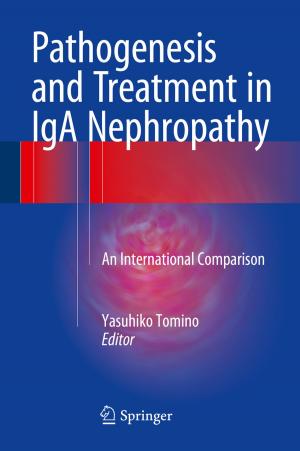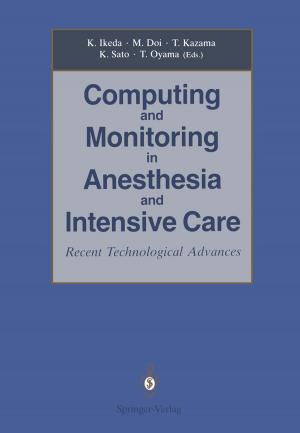Helicobacter pylori Research
From Bench to Bedside
Nonfiction, Health & Well Being, Medical, Medical Science, Microbiology, Immunology| Author: | ISBN: | 9784431559368 | |
| Publisher: | Springer Japan | Publication: | May 9, 2016 |
| Imprint: | Springer | Language: | English |
| Author: | |
| ISBN: | 9784431559368 |
| Publisher: | Springer Japan |
| Publication: | May 9, 2016 |
| Imprint: | Springer |
| Language: | English |
This book provides the current updated knowledge on all essential aspects in the rapidly evolving area of Helicobacter pylori research. H. pylori is a class I carcinogen and one of the most common infections in the world. While most people colonized by H. pylori will remain asymptomatic, up to 20 % of them may develop serious gastroduodenal disease such as peptic ulcers or gastric cancer. H. pylori is the only known bacterium linked to the development of cancer and consequently is an important focus of research. Outstanding international experts from diverse scientific disciplines contribute here to give detailed insights into the current understanding concerning the physiology and role of this pathogen. Both basic science and clinical research with actual practical consequences are taken into account. The chapters target microbiology, epidemiology, genetics, biochemistry, interactions with the immune system, signal transduction, pathogenic mechanisms in the gastroduodenal mucosa, gastric disease development, and therapy including antibiotics or probiotics treatment as well as vaccination strategies. This book is an important reference not only for clinicians but also microbiologists. It provides in a single volume an up-to-date summary of our current knowledge of this microbe and the multiple ways in which it impacts upon public health in all parts of the world.
This book provides the current updated knowledge on all essential aspects in the rapidly evolving area of Helicobacter pylori research. H. pylori is a class I carcinogen and one of the most common infections in the world. While most people colonized by H. pylori will remain asymptomatic, up to 20 % of them may develop serious gastroduodenal disease such as peptic ulcers or gastric cancer. H. pylori is the only known bacterium linked to the development of cancer and consequently is an important focus of research. Outstanding international experts from diverse scientific disciplines contribute here to give detailed insights into the current understanding concerning the physiology and role of this pathogen. Both basic science and clinical research with actual practical consequences are taken into account. The chapters target microbiology, epidemiology, genetics, biochemistry, interactions with the immune system, signal transduction, pathogenic mechanisms in the gastroduodenal mucosa, gastric disease development, and therapy including antibiotics or probiotics treatment as well as vaccination strategies. This book is an important reference not only for clinicians but also microbiologists. It provides in a single volume an up-to-date summary of our current knowledge of this microbe and the multiple ways in which it impacts upon public health in all parts of the world.















